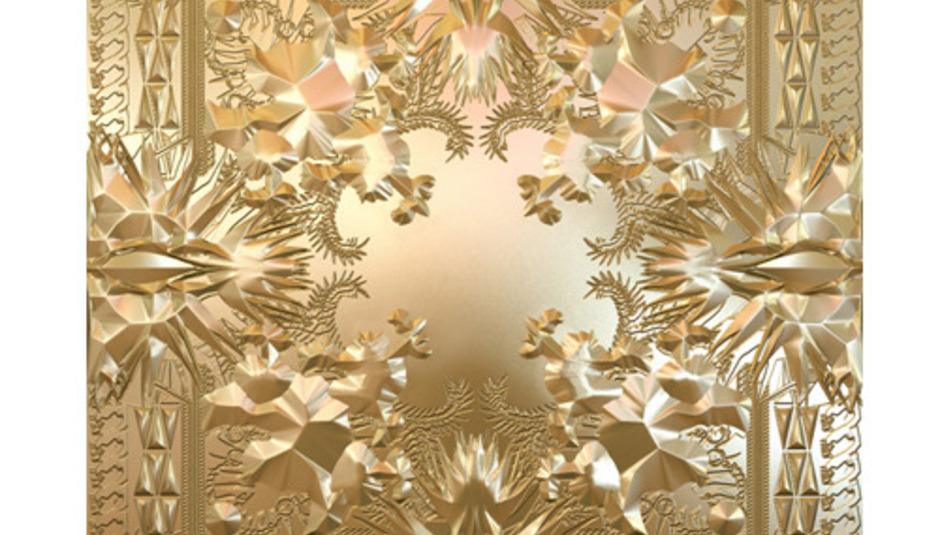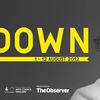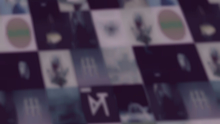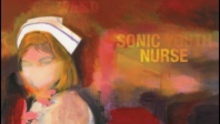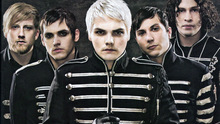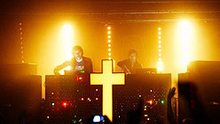Kat Rolle considers the challenges for the middle classes when it comes to enjoying hip-hop...
The other day I played my Mum Kanye and Jay-Z’s Watch The Throne – the latest in a long line of attempts on my part to spark an interest in hip-hop. It seemed accessible, catchy and had already been a hit with tonnes of others who didn’t know the first thing about hip-hop. But, while she quite liked the central riff, she was instantly floored by the first line. “I can’t even understand what he’s saying?!” I explained it was fast, but that if you tuned in, you could hear Hova saying “Ball so hard motherfuckers wanna fine me”. Unfortunately, that didn’t clear up much for my mum.
Backtracking twenty two years, I grew up in a strongly musical environment and if I listed the artists that dominated my childhood (Bowie, Oasis, Blur, Paul Simon, Radiohead) it’s pretty likely you would have a fairly high probability of being able to guess my age, nationality and perhaps even my class. But, like so many teenagers, I was initially reluctant to follow my parents’ music taste. One of my first albums and, aside from a tweenage crush on Robbie Williams, one of my first musical obsessions, came in the form of Marshall Mathers. I honestly don’t remember why I bought The Eminem Show, I imagine it was probably the result of 'Without Me', which was making it in the charts at the time. I was twelve and it was literally like nothing I had ever heard before.
Eminem lead to Dr Dre, Snoop, Nas, Biggie, Jay-Z, Kanye and a whole host of the biggest names in hip-hop. Nobody I knew was listening to it – I grew up in the kind of place where listening to anything outside the Top 40 made you 'edgy' – and my parents reacted with much the same outrage as the baby-boomers when faced with the Sex Pistols. To complicate matters, a couple of years later I fell hard and fast for Nirvana, the Libertines and the Strokes, allowing everyone, including me, to dismiss my hip-hop listening habits as a phase.
Though I took quite a long sabbatical, about ten years later I relapsed back into hip-hop and it looks as if it’s here to stay. This has led me to think about the challenges for people with my background in enjoying hip-hop, and the complications that arise from that position. It’s not really surprising my Mum didn’t understand what Jay was saying, even when I was acting as interpreter. It’s not so easy to explain what “ball so hard” means. Equally, it’s tough to explain why I, a young woman too old for teen fashion fads, own a snapback...
The problem with growing up in a small town is that you are far less likely to find fellow fans of anything vaguely alternative. I was lucky to find people who liked the same kind of cult movies and novels as me, and later, who liked the same indie-rock bands. But hip-hop remained unsolved. Though everyone I knew could rap the choruses to 'The Real Slim Shady' or 'In Da Club', no-one was interested enough to go any further, or if they did, they did it relatively secretly, like me. Consequently, my range was limited. There was no-one to suggest new artists or new songs, no-one to swap CDs with (Jesus, I feel old writing that), and no-one to go to gigs with, although they would have been few and far between in the English countryside.
To this day, this has an impact on me. I missed out on fundamental artists that would have been unthinkable for other people (the Fugees, Mos Def), isolated in my insular enjoyment without the crucial inter-friend exchange that tends to come with the discovery of a new genre. I guess it didn’t help that it was before broadband, before YouTube, and if not before blogging then certainly before blogging was on the radar of twelve year olds. A hangover that still lingers from this is that I tend to listen to either the most mainstream artists (Drake, Kanye , Jay-Z, Eminem etc) or the most hipster, the lucky few who make it into indie blogs and onto sites like Pitchfork and the NME (Childish Gambino, OFWGKTA, Chiddy Bang).
I think perhaps the problem is greater in the UK, where hip-hop, and I suppose possibly everything else, is more affected by class divisions. It’s hard for me to call, as obviously I’m not subject to the class pressures doubtless present in the U.S. and everywhere else, but in Britain, the hip-hop scene tends to be limited to a much smaller audience, and thus one which tends to emulate its stars’ backgrounds – mostly poor, mostly inner city and often ethnic minorities. Naturally, with so much of hip-hop’s content focusing on the ghetto, childhood hardships and stories of how the rappers made it to their eventual success and fame, it favours listeners from a certain background. But, in the U.S. particularly, it seems that there is simply so much more hip-hop, receiving so much more exposure and reaching such a bigger audience, that the effect is slightly diluted. Sure, hip-hop’s “target audience” is perhaps young, poor and black, but a load of other people listen to it too. With the Brit-hop scene being correspondingly smaller, the scene is more underground (aside from the odd success story, like Dizzee Rascal or Plan B) and thus results in a smaller, more homogenous audience – which makes it harder if you’re into it and don’t have the same background. Everyone listens to the break out chart successes, but to be into the scene (or the owner of a snapback...) it’s sort of assumed that you will come from a set background, gender and even race.
There is also, of course, the eternal problem, famously raised by Zach Braff’s JD in Scrubs; “My question is this: If we're both singing along, and knowing that otherwise I would never use the word, am I allowed to say...”, interrupted by an emphatic “No.” from Turk. Basically, if you’re English, white and middle class, there’s a hell of a lot of lyrics that are just going to be pretty much impossible for you to rap along to without sounding like a complete douchebag. Aside from the sheer hypocrisy of singing along and telling tales from the hood and whatever else, it’s also extremely difficult not to sound utterly fucking stupid when you’ve got an accent that sounds more like the Queen’s than being from Queens. Let’s face it, when you’re English, even Will Smith can pose a problem.
The upshot of all of this, is that the few kids who do get turned onto hip-hop in the UK, outside its typical environs, don’t tend to last very long as fans. I was driven to indie and though I wouldn’t deny that it’s now my one-true love, would it always have been? Or was it a result of peer-pressure and isolation, a need to fit in and the consequences of the surroundings I grew up in? You might say that I can’t have been that into it, that many people have overcome similar adverse conditions to become experts in something outside of everything they came from. Whatever, like I say, I’m happy with indie and guitars, but it does intrigue me that, for most of us, our musical tastes seem likely to be predestined by our socio-economic and geographical backgrounds. Essentially, had I grown up in different circumstances, I’m sure I would have been living and breathing hip-hop, rather than unwillingly abandoning it until my twenties. Ultimately, it seems to me that we’re nurtured rather than natured into our musical preferences. Although, regardless, it seems unlikely that my Mum would have ever related to balling hard...

